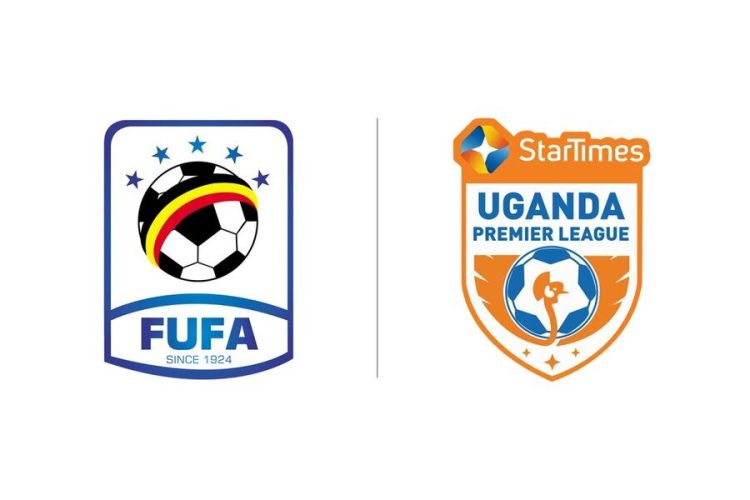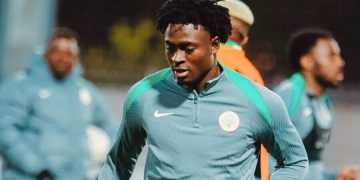The Federation of Uganda Football Associations (FUFA) has been forced into retreat, shelving its much-touted StarTimes Uganda Premier League (UPL) reforms after a wave of defiance from clubs, fans, and sponsors turned the experiment into a public relations disaster.
FUFA President Moses Magogo confirmed the suspension on Saturday following an emergency meeting at the FUFA Complex in Mengo.
The session brought together the Uganda Premier League Secretariat and representatives from eleven of the sixteen top-flight clubs, a clear sign that the governing body had lost control of its own creation.
Grand plan that fell apart
What began in August as a bold “modernization drive” ended in humiliation barely three weeks into the new season.
FUFA’s reform package was meant to overhaul Uganda’s top flight into a slick, multiphase competition, one that would see a single-leg first round, a midseason split into top and bottom eights, and a final stage to determine standings.
It wasn’t just about fixtures. The reforms bundled in new rules for player registration, match data collection, and prize money distribution. Clubs received the full package only days before kick-off, leaving little room for dialogue or preparation.
Match day 3 results ✅#StarTimesUPL pic.twitter.com/o5pKnooAnI
— StarTimes Uganda Premier League (@UPL) October 18, 2025
Warnings ignored, tempers ignited
From the outset, club executives and fan groups warned that FUFA was moving too fast. A consultative meeting in early September ended without consensus, but the federation pressed ahead regardless.
When the 2025/26 UPL season kicked off on September 26, it did so amid discontent rather than excitement. Fans organized boycotts, attendance plunged, and the atmosphere inside stadiums felt more like protest than celebration.
For sponsors and broadcasters, the message was clear, Uganda’s football economy was in danger.
Vipers’ revolt sparks chain reaction
The turning point came when Vipers SC refused to show up for their scheduled fixture against Kitara FC at Namboole Stadium, citing what they called “a poorly handled reform rollout.”
The no-show became the spark that lit a nationwide debate. Vipers’ protest transformed private grumbling into a full-blown rebellion. FUFA suddenly found itself facing not just logistical chaos but a crisis of legitimacy.
View this post on Instagram
Lawrence Mulindwa takes the helm
At the centre of the storm stood Dr. Lawrence Mulindwa, Vipers’ president and one of the most influential figures in Ugandan football.
Mulindwa openly challenged FUFA’s approach, framing his opposition as a defence of “club rights and sporting integrity.” His conviction and clarity of message struck a national chord.
Public sentiment shifted overnight. What had begun as one club’s protest became a collective cause.
Within weeks, Mulindwa was being hailed by the wider football community for turning disunity into purpose. Even SC Villa president Omar Mandela joined the resistance, publicly rejecting the reforms while declaring that his club would “play under protest.”
View this post on Instagram
House divided
Still, not every club took the same line. Some chairmen stayed quiet, unwilling to anger FUFA. Others went further, voicing support for the reforms.
Among them was Kitara president Deo Kasozi, who remarked bluntly in September:
“Yes, Vipers and Villa have big fan bases, but football does not stop because one or two teams are absent. The disadvantages would weigh more heavily on them than on the 13 clubs that remain.”
His comments only deepened the rift, exposing how fractured the top tier had become.
Keeping in shape pic.twitter.com/APxF1bRKgP
— Kitara Football Club (The Royals) (@KitarafcHoima) October 15, 2025
Fans turn their backs, literally
While the power brokers squabbled, fans did the talking where it hurt most: the stands.
Across the country, terraces stood half-empty as supporters staged stay-away protests. Stadiums that once roared on Matchdays now echoed with silence.
Even KCCA FC faced public ridicule after reports emerged that the club had ordered its own employees to attend games dressed in club jerseys to disguise the boycott — an act that quickly went viral and symbolized the league’s disconnect from its base.
FUFA’s reluctant retreat
By mid-October, the writing was on the wall. FUFA was facing three simultaneous fires:
- Financial pressure, as gate receipts collapsed.
- Logistical chaos, after a major club refused to play.
- Corporate unease, with sponsors and broadcasters warning of reputational fallout.
Magogo and his team had little room left to maneuver. In the end, FUFA “reluctantly suspended application of Rule 14:4-12 from the 2025 competition rules” and reinstated the traditional calendar, promising more “education and consultation” before any new reforms return.
Road ahead
The federation now faces the task of rebuilding trust. FUFA has promised a fresh round of engagement with clubs and fans before revisiting any structural changes.
Clubs, in turn, are demanding assurances — not just on format, but on process, timelines, and respect for stakeholder voices.
Formal communiqués from FUFA and the UPL board are expected in the coming days, outlining the revised roadmap for the remainder of the season.
🎙️ ‘It has been agreed that we will proceed—because the league is already going on—with the matches that have been played’ – Hon. Magogo Moses Hassim (@MosesMagogo), FUFA President @UPL | #StarTimesUPL pic.twitter.com/7CndYGqYno
— FUFA (@OfficialFUFA) October 18, 2025
Fans = real game-changers
For once, it wasn’t boardroom decisions or court rulings that changed the game — it was the people in the stands.
By voting with their feet, fans forced FUFA to confront a truth often forgotten in Ugandan football politics: the game belongs to its supporters.
Empty seats spoke louder than any slogan. And this time, FUFA had no choice but to listen.






